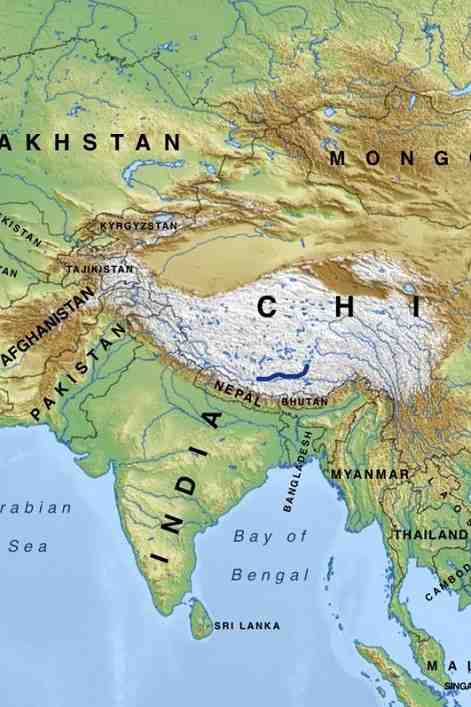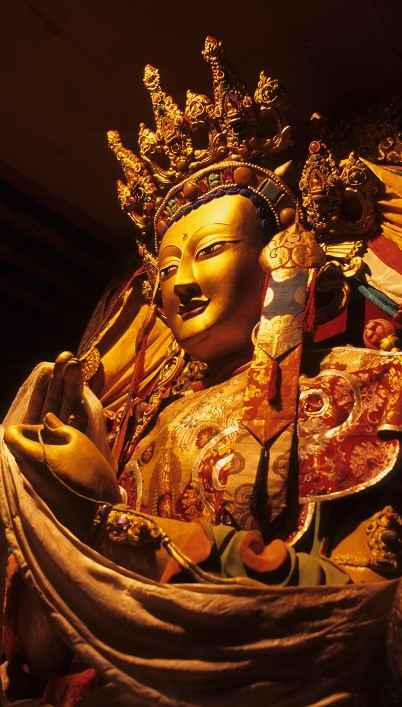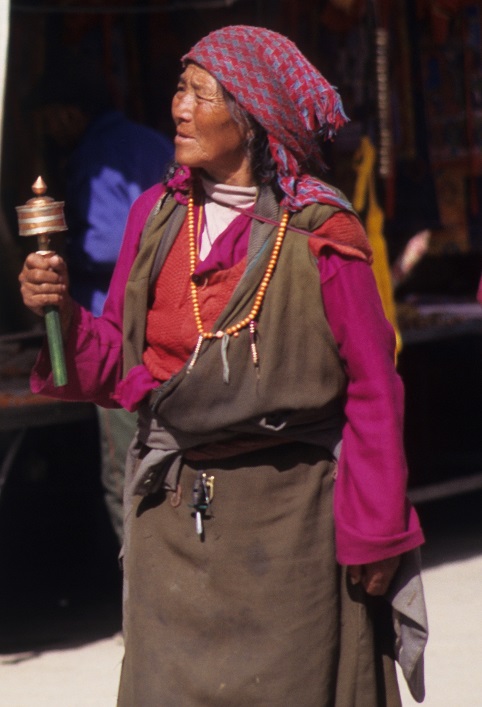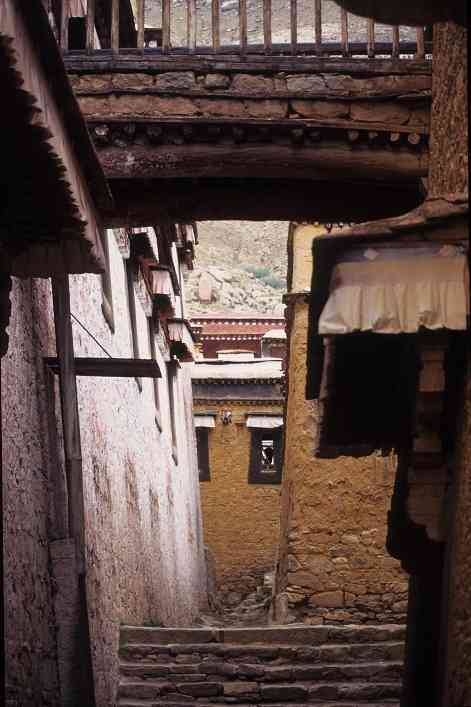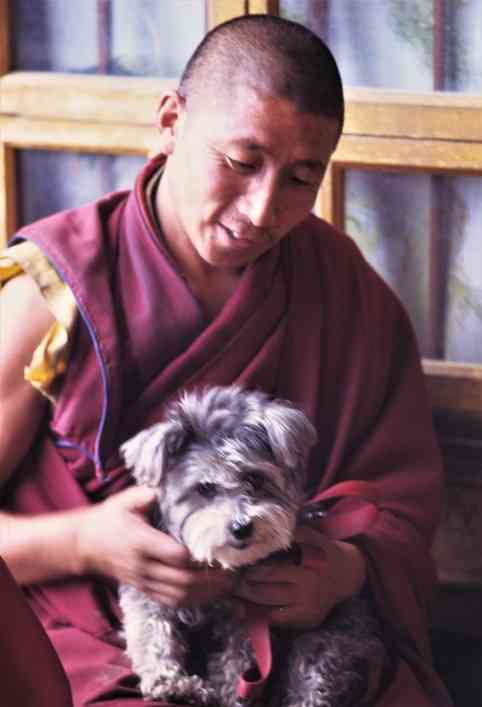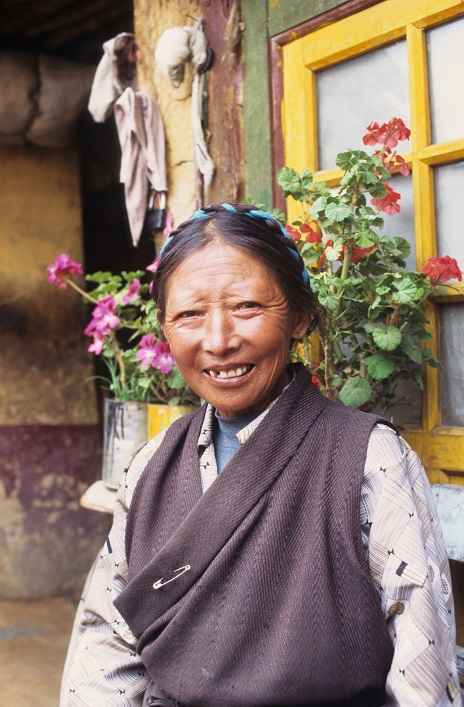Having somehow managed to smuggle Afrika past the Kathmandu airport x-ray machine, the flight to Lhasa was delayed. While waiting, I befriended an Italian Buddhist monk who later introduced me to the sacred side of Lhasa, where I soon struck a friendship with a Tibetan man sourcing religious relics destined to a new monastery nearby Mount Kailash. He introduced me to many interesting people living all over the Lhasa Valley, and I became his mule, carrying the relics past police checkpoints.
Meanwhile, a series of historical books opened my eyes to the harsh realities of Tibetan society prior to the Chinese takeover, demoting the country from the high spiritual pedestal I had imagined it occupied. This realization opened my eyes to the complexities of its fascinating history, allowing a more thorough involvement with my surroundings.
When my Tibetan friend offered us an illegal lift to Mount Kailash, Afrika and I went ahead to visit the town of Shigatse. On the bus I met a Tibetan Red Guard, who stupefied me with his love of Mao Tse Tung. In Shigatse we got caught in a rebellion which ended in a three-day curfew, during which the majority of other foreigners were kicked out of the country. My Tibetan friend never arrived, which also meant losing all the provisions and warm clothing I had bought for the perilous crossing, including the many military cans of corned pork I had managed to source for Afrika. The dream of reaching the sacred mountain and the desert sands beyond it seemed as elusive as ever, though something in heart refused to accept defeat, and I continued to fantasize about it.



